Smokers and grills serve fundamentally different purposes: grills use direct high heat (300°F–600°F) for quick cooking (minutes) of tender cuts like steaks and burgers, while smokers use indirect low heat (180°F–275°F) with wood smoke for slow-cooked meats like brisket and ribs over hours or days. Here's a clear comparison to help you choose the right tool for your cooking needs.
| Feature | Grill | Smoker |
|---|---|---|
| Cooking Style | Direct heat | Indirect heat + smoke |
| Temperature Range | 300°F–600°F | 180°F–275°F |
| Cooking Time | Minutes | Hours to Days |
| Flavor Infusion | Moderate | High |
| Best For | Steaks, burgers, veggies | Brisket, ribs, pulled pork |
Heat and Cooking Methods: Fire vs. Glow
The core difference between a smoker and a grill lies in heat management:
- Grill: Uses open flame or gas burners for intense, immediate heat directly under food. Ideal for quick searing and high-heat cooking.
- Smoker: Uses indirect heat with fire placed off to the side, circulating heat and smoke slowly around food for even cooking and deep flavor infusion.
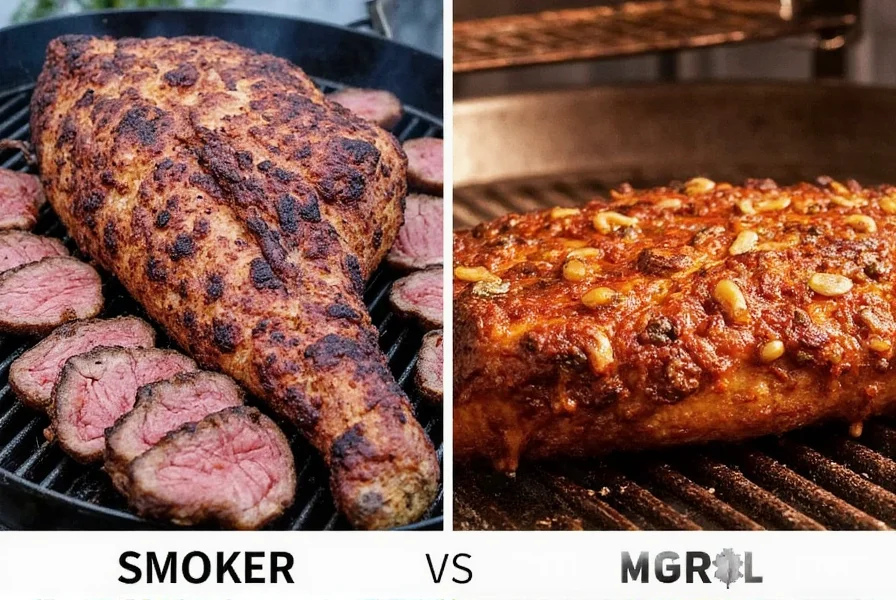
Fuel Sources Compared: Wood, Charcoal, Gas & Electric
| Fuel Type | Common Use | Pros | Cons |
|---|---|---|---|
| Charcoal | Grills and offset smokers | Rich flavor, portable | Hard to control temps |
| Wood | Traditional smokers | Purest smoky flavor | Labor-intensive, time-consuming |
| Propane (Gas) | Grills and some smokers | Easy temperature control | Less authentic flavor |
| Electric | Entry-level smokers | Very easy, consistent heat | Weak smoke flavor |
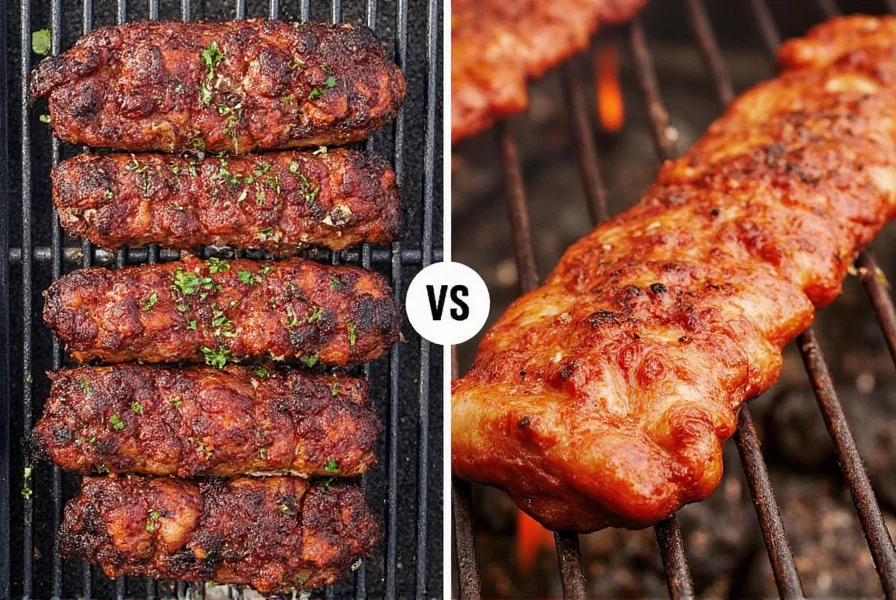
Cooking Time & Flavor Differences
- Grill: Cooks food quickly (10–30 minutes), ideal for tender cuts that don't require breaking down connective tissue.
- Smoker: Cooks slowly (4–14 hours), allowing collagen to break down and fat to render for fall-off-the-bone tenderness.
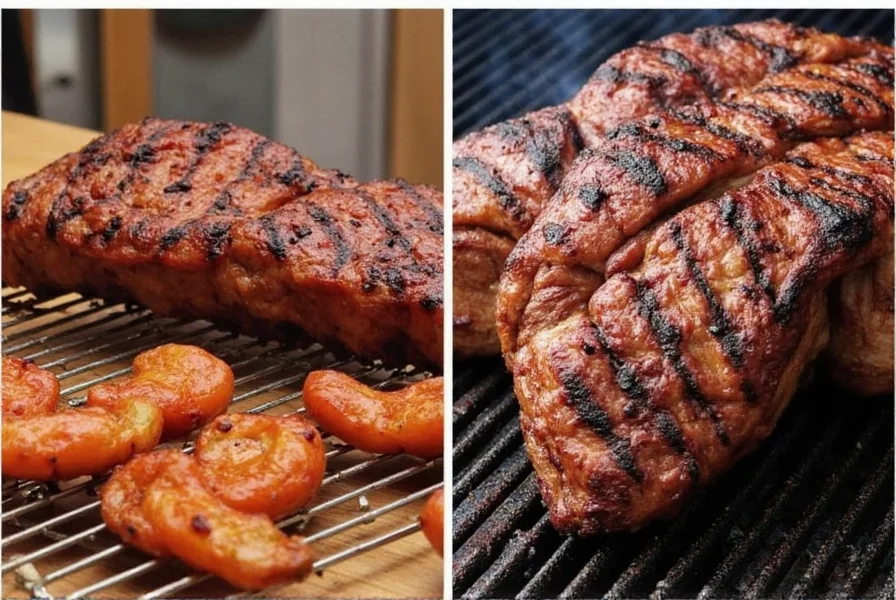
Taste Test: Flavor Profiles
- Grilled Meat: Charred crust, juicy center, light smoke aroma
- Smoked Meat: Deeply infused smoky flavor, tender texture, bark formation on exterior
When to Use Each Tool: Dish-Specific Guide
| Dish | Recommended Tool | Why |
|---|---|---|
| Steak | Grill | Sear at high heat locks in juices |
| Burgers | Grill | Fast cooking preserves moisture |
| Ribs | Smoker | Low-temp smoke makes meat tender |
| Brisket | Smoker | Long cook time breaks collagen |
| Chicken Wings | Both | Grill for crispy skin, smoker for flavor |
Frequently Asked Questions
What is the main difference between a smoker and a grill?
The main difference is in cooking method. Grills use direct high heat (300°F-600°F) for quick cooking (minutes), while smokers use indirect low heat (180°F-275°F) with smoke for slow cooking (hours to days). Grills are ideal for steaks, burgers, and vegetables, while smokers excel at tough cuts like brisket, ribs, and pork shoulder that benefit from long, slow cooking.
Can you use a grill as a smoker?
Yes, but with limitations. Charcoal grills can use indirect cooking with wood chips for smoke, and gas grills can use smoker boxes. However, dedicated smokers maintain more consistent low temperatures for true "low and slow" cooking that grills typically can't achieve.
What's better for beginners: a smoker or a grill?
Grills are generally better for beginners due to faster cooking times (minutes vs hours), easier temperature control (especially gas grills), and less monitoring required. Electric smokers are a good beginner option for smoking if you want to try smoking without the complexity of charcoal.
How long does it take to smoke meat versus grill meat?
Grilling typically takes 10-30 minutes for most foods. Smoking requires 4-14 hours depending on the meat: ribs (5-6 hours), chicken (3-4 hours), and brisket (10-14 hours) at 225°F for proper tenderness.
Can you get smoky flavor from a regular grill?
Yes, using wood chips in a smoker box (gas grills) or directly on coals (charcoal grills). However, the smoke flavor won't be as deep or penetrating as from a dedicated smoker designed for prolonged smoke exposure at optimal temperatures.
Do I need both a smoker and a grill?
It depends on your cooking habits. If you want both quick weeknight meals and slow-smoked specialties, having both is ideal. However, versatile options like kamado grills or pellet grills can handle both high-heat searing and low-and-slow smoking, making them a good single-unit solution for space or budget constraints.
Conclusion: Which Tool Wins?
There's no single winner—grills excel at quick, high-heat cooking for everyday meals, while smokers deliver deep, smoky flavor for special occasion dishes. Choose based on your cooking style: grab a grill for fast, seared perfection or a smoker for patient, flavorful transformation. Either way, you're in for a delicious experience.
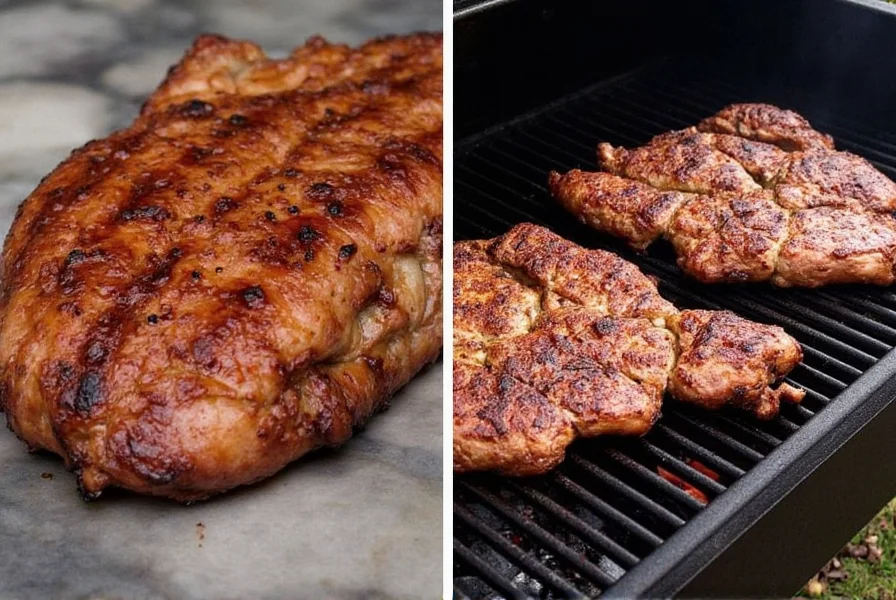

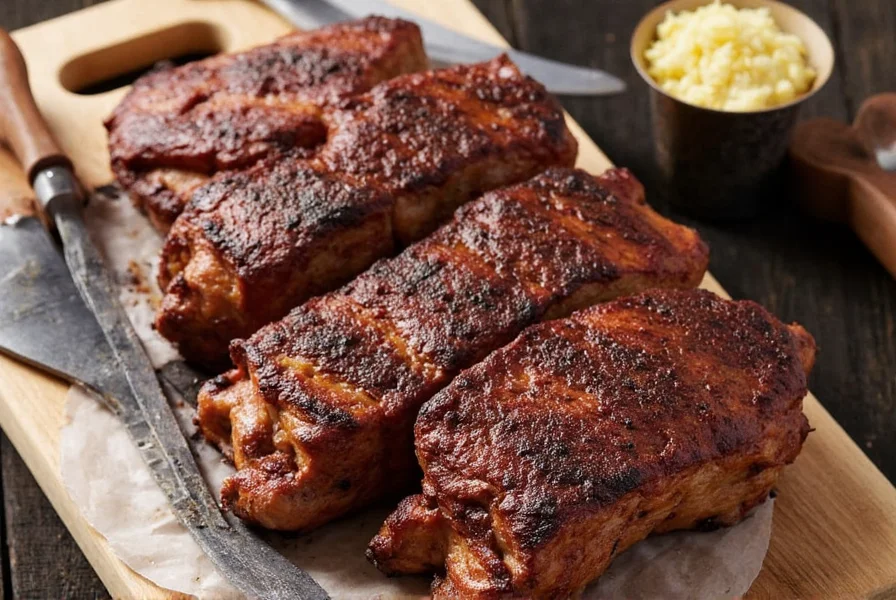









 浙公网安备
33010002000092号
浙公网安备
33010002000092号 浙B2-20120091-4
浙B2-20120091-4